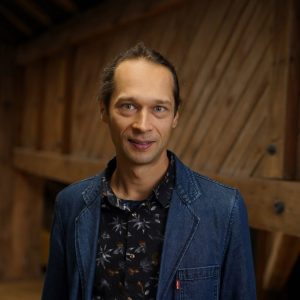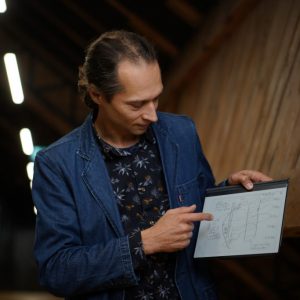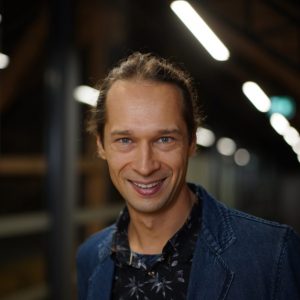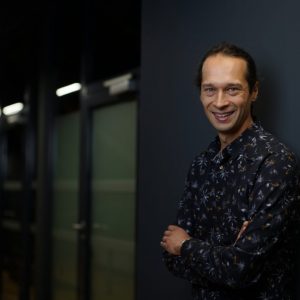An interdisciplinary team of researchers led by Professor Adam Izdebski from the University of Warsaw has been awarded a prestigious Synergy Grant by the European Research Council (ERC). The EUROpest project: A Novel Understanding of Pandemic Disease in Preindustrial Europe (1300-1800): Combining History, Machine Learning and Natural Sciences will be carried out by a consortium coordinated by the University of Warsaw. This is the first Synergy Grant awarded to the UW.
Why does the same pandemic wave cause great havoc in one place and is barely visible in another? What determines that knowing what pathogen we are dealing with is not enough to predict what will happen? The international team of the EUROpest project, which was awarded an ERC Synergy Grant by the European Research Council (ERC), will address these questions.
The implementation of the EUROpest project: A Novel Understanding of Pandemic Disease in Preindustrial Europe (1300-1800): Combining History, Machine Learning and Natural Sciences will last six years, starting in the midle of next year. It will involve dozens of researchers from ten scientific institutions in Europe and the United States. This entire consortium is coordinated by the University of Warsaw. The project has been awarded with almost €10 million.
This is the first ERC Synergy Grant for the University of Warsaw and the second one led by a Polish scientific centre (the first one is coordinated by the Nicolaus Copernicus Astronomical Center of the Polish Academy of Sciences).
EUROpest
“The main objective of our project is to find the answer to the question of why the same pathogens, depending on the context, bring about different biological, ecological, social, economic and cultural effects. We want to address this issue by studying more than 50 different epidemics in European history, from the Black Death to the age of industrialisation, over some 500 years, looking at them from possible angles, including climate, genetics, ecology, as well as the unusual topics such as church rituals (did they sing or not?) or the types of hats worn,” says Professor Adam Izdebski from the Faculty of “Artes Liberales” at the University of Warsaw.
For each epidemic, the research team will try to use historical and archaeological data to reconstruct the conditions of daily life locally (clothing, housing, diet, or health), as well as the demographic structure, knowledge and perception of disease, means of transportation and trade routes, the political, economic and religious situation.
“We will not stop there. Using the methods of archaeogenetics, we will identify and study the pathogens (bacteria and viruses) responsible for the death of the victims of each epidemic,” explains the scientist, adding: “To this historical and biological studies, we will add ecological and climatic findings.”
The research area of preindustrial Europe will thus serve as a kind of laboratory to construct and test a theory, contributing to future pandemic modelling.
“In the final project phase, all this vast knowledge will be analysed using machine learning, resulting in a theoretical model that will also be applicable in the future. We will present how all these factors can be taken into account in predictions of the future pandemic risks, their consequences and their possible course in Poland and worldwide,” explains Professor Izdebski.
Besides the University of Warsaw, the other leading institutions of the EUROpest are Justus Liebig University Giessen in western Germany (Elena Xoplaki), Georgetown University in Washington (Tim Newfield), and the Max Planck Institute for Evolutionary Anthropology in Leipzig (Alexander Herbig).
In Poland, the EUROpest team will be represented by two institutions: the University of Warsaw and the Institute of Geography and Spatial Planning of the Polish Academy of Sciences, where a sub-team led by Prof. Michał Słowiński will be responsible for palaeoecological fieldwork in Lithuania, Ukraine and Poland. Additionally, the UW’s team will be supported by a group of historians led by Prof. Piotr Guzowski, an economic historian and historical demographer at the University of Białystok.
ERC Synergy grants are designed for researchers who wish to conduct interdisciplinary projects requiring the involvement of more than one research team. They can be implemented by a group of two to four individual researchers together with their research groups.
This year, 57 research teams will receive a total of €571 million to address some of the most complex scientific problems, covering a wide range of disciplines. The maximum duration of the project implementation is six years.
Prof. Adam Izdebski is a historian and ecologist. Between 2003 and 2008, he studied history and psychology as part of the MISH programme (Interdisciplinary Individual Studies in the Humanities) at the University of Warsaw, and in 2007/2008 he also completed his MA in history at the University of Oxford. He defended his PhD in history at the University of Warsaw in 2011, followed by a Aleander von Humboldt Foundation postdoctoral fellowship at the Freie Universität Berlin. Upon returning to Poland in 2012, he completed a National Science Centre (NCN) FUGA postdoctoral fellowship at the Institute of History at the Jagiellonian University, where he has been permanently appointed as professor ever since and where he also obtained his habilitation (2020).
Since 2017, he has been mainly active abroad – first at the Institute of Advanced Study in Princeton, and as of 2018 at the Max Planck Institute of Geoanthropology (formerly Science of Human History). There, he leads a research group comprised of historians, archaeologists, geologists, and biologists, who work together on the environmental history of Europe in the late Holocene. Due to the interdisciplinary nature of his research, he was promoted to full professorship in the natural sciences (biology). Recently, he has also been setting up a new research group at the Centre for Systemic Risk Analysis at the UW (Faculty of “Artes Liberales”).
Prof. Adam Izdebski is also involved in science outreach (for instance, he led the publication of Krakow. An Ecobiography, Pittsburgh Univ. Press 2021) and in several science for policy activities (through one of them, the EGU Biodiversity Task Force, he advised EU Parliament members during the Nature Restoration Law legislation process).







